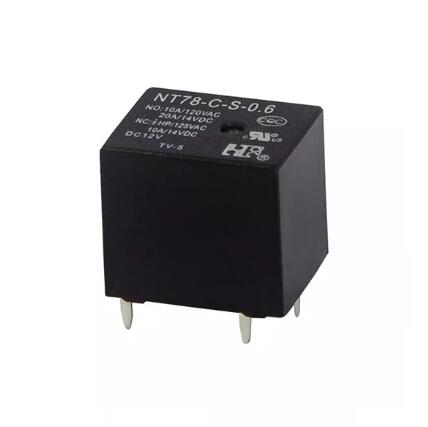Exploring the Advancements in Miniature Automotive PCB Relays
2024-09-03
The automotive industry has seen rapid advancements in technology, with vehicles becoming increasingly complex and sophisticated. At the heart of many of these advancements are miniature automotive PCB relays, which have evolved to meet the growing demands of modern vehicles. In this blog, we'll explore some of the recent developments in these essential components and how they contribute to the efficiency and safety of today's automobiles.
The Shift Towards Miniaturization
As automotive manufacturers strive to make vehicles more compact and lightweight, the demand for smaller, yet powerful, components has risen. Miniature automotive PCB relays have become a key solution to this challenge. These relays are designed to occupy minimal space on the vehicle's circuit board while still delivering the performance required to manage complex electrical systems.
Advanced Materials and Manufacturing Techniques
One of the significant advancements in miniature automotive PCB relays is the use of advanced materials and manufacturing techniques. Manufacturers are now using high-performance plastics and metals that offer improved thermal stability, corrosion resistance, and mechanical strength. These materials ensure that the relays can withstand the harsh operating conditions commonly found in automotive environments, such as extreme temperatures and exposure to chemicals.
Additionally, precision manufacturing techniques, such as automated assembly and laser welding, have enhanced the reliability and durability of these relays. These methods reduce the likelihood of defects and ensure consistent performance over the lifespan of the vehicle.
Enhanced Electrical Performance
Modern vehicles are equipped with a multitude of electronic systems, from advanced driver-assistance systems (ADAS) to infotainment and climate control. To meet the power demands of these systems, miniature automotive PCB relays have been engineered to offer enhanced electrical performance. This includes:
- Improved Contact Materials: The use of advanced contact materials, such as silver alloys, has increased the electrical conductivity and reduced the contact resistance of these relays. This ensures efficient power transfer and minimizes energy loss, contributing to the overall energy efficiency of the vehicle.
- High Switching Capabilities: Newer miniature PCB relays are capable of switching higher currents and voltages, making them suitable for a broader range of applications. This includes controlling electric motors, fuel pumps, and other high-power components that are essential for the vehicle's operation.
- Reduced Coil Power Consumption: To improve energy efficiency, many modern miniature PCB relays feature coils with reduced power consumption. This not only conserves battery power but also generates less heat, which is crucial for maintaining the relay's longevity and reliability.
Integration with Smart Vehicle Systems
As vehicles become more connected and autonomous, the integration of relays with smart vehicle systems has become increasingly important. Miniature automotive PCB relays are now being designed with features that allow for seamless integration with the vehicle's electronic control units (ECUs). This includes:
- Diagnostic Capabilities: Some modern relays are equipped with diagnostic features that allow the vehicle's ECU to monitor the relay's status in real-time. This enables predictive maintenance, where potential relay failures can be detected and addressed before they lead to system malfunctions.
- EMI/RFI Shielding: With the proliferation of wireless communication systems in vehicles, electromagnetic interference (EMI) and radio frequency interference (RFI) have become concerns. Advanced miniature PCB relays are now being designed with shielding to protect against these interferences, ensuring that the vehicle's electronic systems operate without disruption.
The Future of Miniature Automotive PCB Relays
As the automotive industry continues to evolve, the role of miniature automotive PCB relays is set to expand further. With the advent of electric vehicles (EVs) and autonomous driving technologies, the demand for reliable, high-performance relays will only increase. Future advancements may include the development of relays with even smaller footprints, higher power handling capabilities, and greater integration with vehicle networks.
Conclusion
Miniature automotive PCB relays have come a long way, evolving from simple electromechanical switches to advanced components that play a critical role in modern vehicles. With continuous advancements in materials, manufacturing techniques, and smart integration, these relays are poised to remain at the forefront of automotive technology. As vehicles become more complex and electrified, the importance of these miniature components will only grow, making them indispensable to the future of automotive design.



